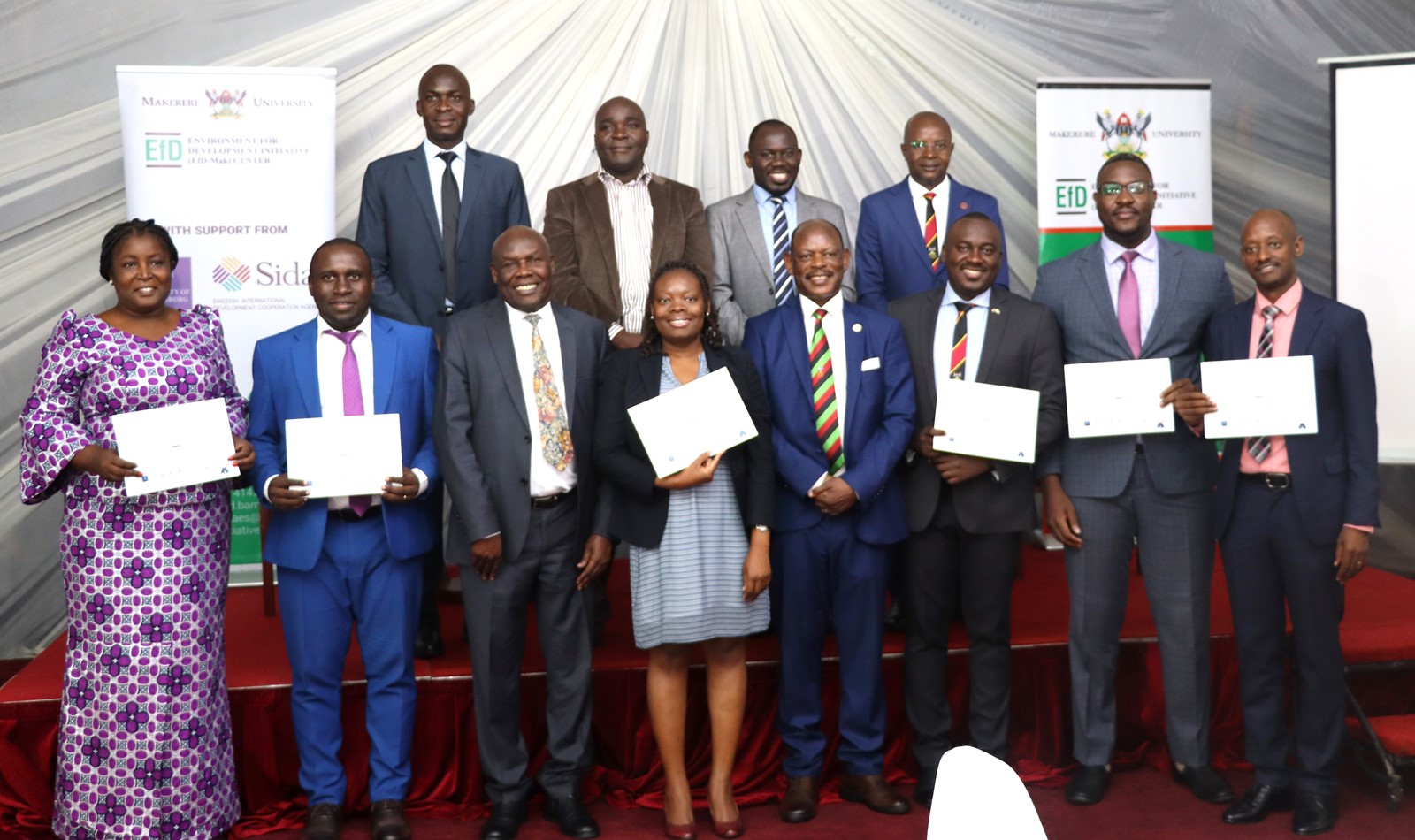EfD Uganda has celebrated the graduation of its third cohort of the Inclusive Green Economy (IGE) Capacity Building Program. The event, held at the Sheraton Hotel in Kampala, also included a discussion on promoting clean cooking in rural areas of Uganda. The function brought together IGE Fellows, representatives from various ministries and agencies, academia, the private sector, civil society organizations, and charcoal traders.
The ceremony held on August 7, 2024 was graced by the Swedish Ambassador to Uganda, Maria Hakansson, Minister of State for Energy Hon. Okaasai Opolot Sidronius, and Makerere University Vice Chancellor Prof. Barnabas Nawangwe.
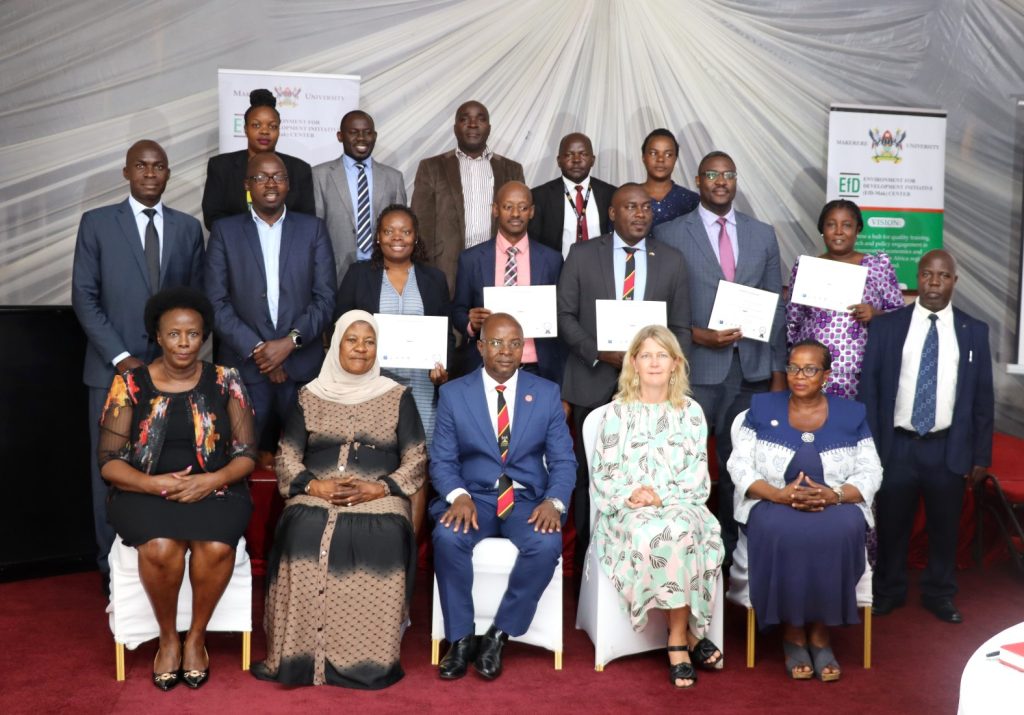
The Inclusive Green Economy (IGE) in Practice Program is a capacity development initiative for senior civil servants and policymakers in Eastern Africa. It aims to increase the knowledge and use of economic policy instruments to achieve a just green transition. The program, financed by the Swedish International Development Cooperation Agency (Sida) and implemented by the Environment for Development Initiative (EfD) at the University of Gothenburg, collaborates closely with EfD centers and partners in Ethiopia, Kenya, Rwanda, South Africa, Tanzania, and Uganda at Makerere University. Since its inception, 25 senior policymakers, including some at the director level, have been trained.
Prof. Edward Bbaale, the IGE Country Lead Uganda and Director of EfD Uganda, explained that the program includes several activities aimed at creating impacts at various levels including high-level dialogues, professional in-service training, Training of Trainers programs, co-creation of solutions for IGE Transformation Initiatives, cross-country learning workshops, initiation and promotion of an IGE community of practice, and the development and maintenance of a digital learning platform.
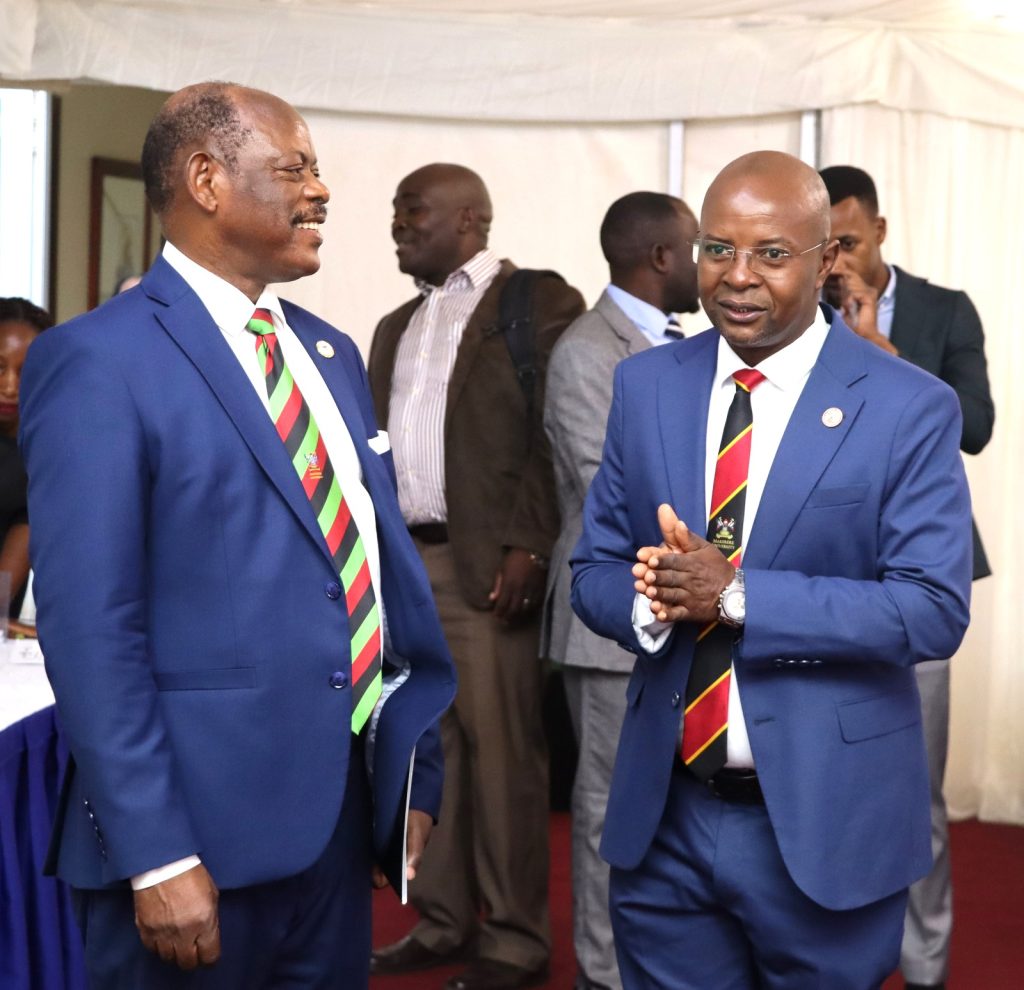
At the event, six IGE Fellows graduated from the program, including Eng. Ssekitoleko Simon Peter, Assistant Commissioner, Ministry of Energy and Mineral Development; Tony Joshua Mwesigwa, Economist, Ministry of Energy and Mineral Development; Mr. Kandwanaho Jonan, Senior Planner, Chemical Industry, National Planning Authority; Kebirungi Elizabeth, Planner, Natural Resources and Environment, National Planning Authority; Mr. Paul Byamugisha, Senior Climate Finance Officer, Ministry of Finance, Planning, and Economic Development; and Ms. Flavia Namagembe, Climate Finance Officer, Ministry of Finance, Planning, and Economic Development. The support team included Prof. Edward Bbaale, Dr. John Sseruyange, Dr. Nicholas Kilimani, and Dr. Peter Babyenda.
“The program will continue until 2027, having received a renewal for five years starting in 2023. For 2024, we will still focus on energy, specifically looking at energy efficiency and emissions reduction, concentrating on promoting the uptake of electric vehicles in Uganda’s transport sector,” Prof. Bbaale reported.
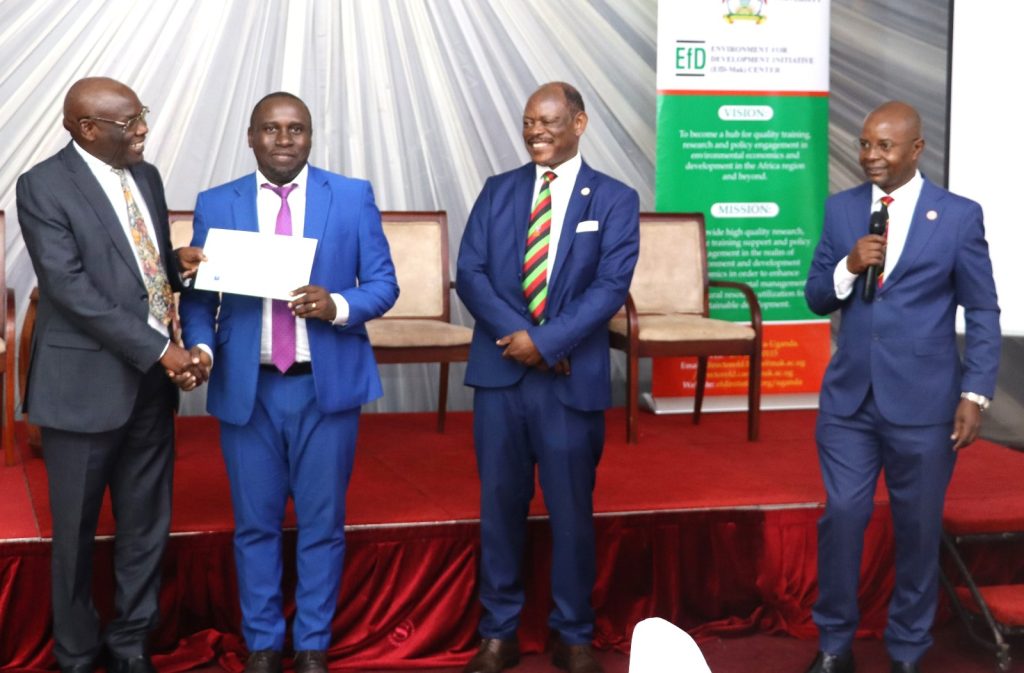
The 2024 IGE Fellows were also introduced. They will undergo a one-year training course, engaging in various activities including both physical and online lectures co-delivered with policymakers and university faculty. They include Lucy Atek, Economist, Ministry of Energy and Mineral Development; Charles Ocen, Engineer, Ministry of Water and Environment; Doreen Ankunda, Climate Finance Officer, Ministry of Finance, Planning, and Economic Development; Lucky Nabwire, Economist, Kampala Capital City Authority; and Vincent Operimo, Manager, Strategic Planning, National Planning Authority.
“The current group we are celebrating today focused on increasing the uptake of clean cooking in rural areas as their Transformation Initiative. The objectives were to create awareness about transitioning from biomass dependence to cleaner energy sources and to establish factors that can increase the uptake of cleaner energy sources such as LPG, electricity, and biogas,” Prof. Bbaale said.
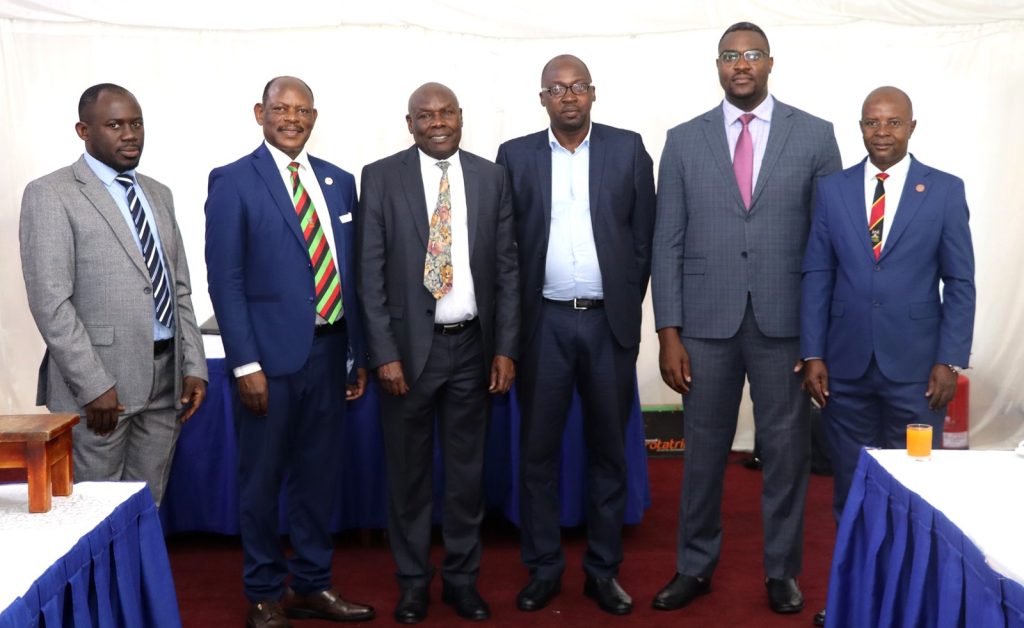
This initiative included dialogues, a national stakeholders’ workshop, policy briefs, focus group discussions, and awareness-raising campaigns through social media, print media, and TV. It also contributed to developing the National Climate Finance Strategy 2023/24 – 2029/30, guidelines to mainstream climate change in Uganda’s financial sector, the fiscal framework for carbon markets, national green taxonomy, and a just transition framework.
Prof. Bbaale highlighted key lessons from cross-country learning, such as the importance of developing local solutions for local problems, making alternative fuels more accessible, and conducting effective awareness campaigns. He emphasized the need for targeted training programs to empower rural residents with knowledge and skills related to clean energy adoption.
Energy Minister Calls on Makerere University to Lead in Localizing Energy Technology and Human Resource Development
In his opening remarks, Minister of State for Energy, Hon. Okaasai Opolot Sidronius, urged Makerere University to collaborate in localizing and developing technology, laboratories, and human resources for energy systems.
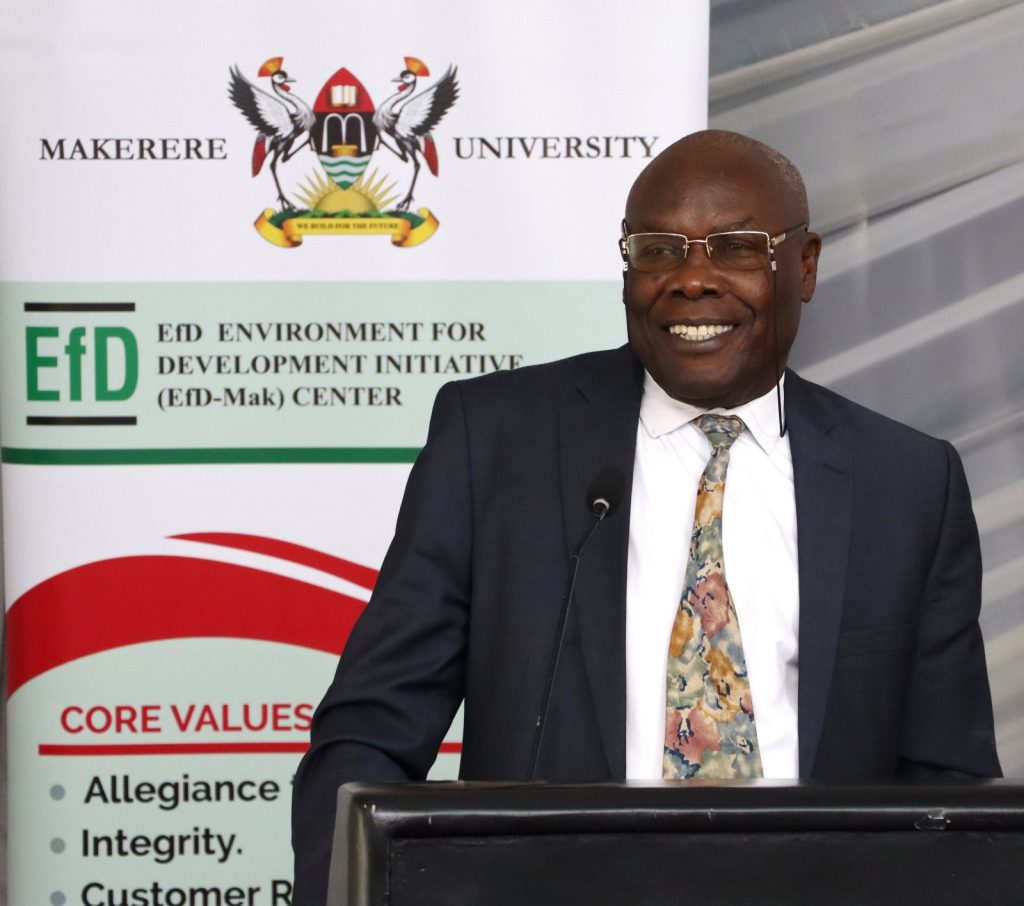
Hon. Opolot expressed his frustration with Uganda’s dependence on foreign consultancies and emphasized the importance of building local capacity. He shared his experiences from visiting advanced energy labs in the United States, highlighting the need for Uganda to develop similar facilities and expertise. “We need to stop relying on foreign experts and start developing our own technologies and human resources. If the Americans can do it, why can’t we?” he said.
The Minister outlined Uganda’s efforts in developing its nuclear energy capacity, including signing multiple MoUs with countries like Russia, China, and Korea, and identifying potential sites for nuclear plants and training centers. He stressed the necessity of developing human resources locally, stating, “We must focus on building our own capacity to train thousands of scientists and technicians. Sending them abroad is not sustainable.”
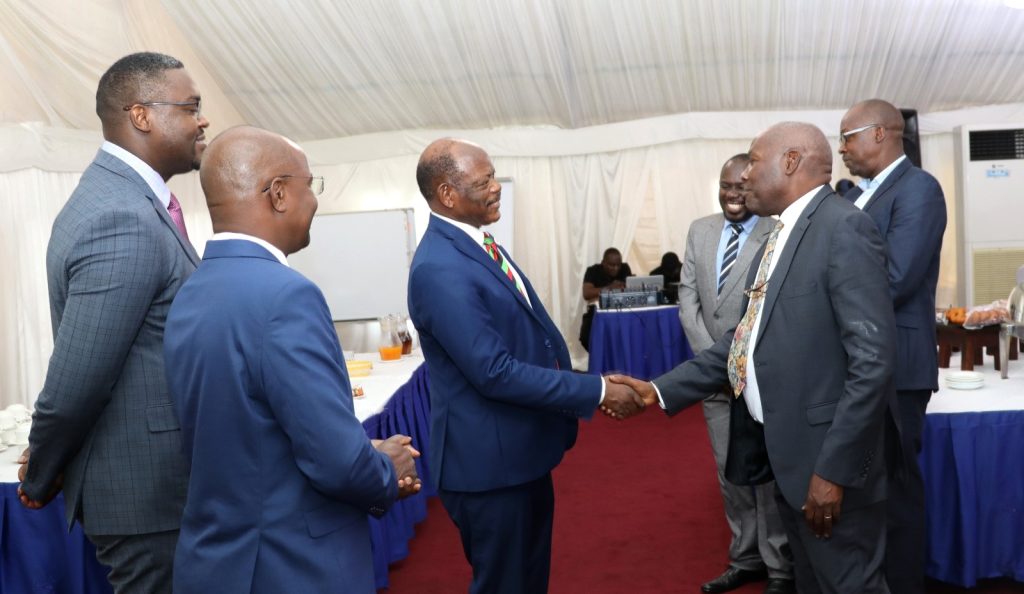
Minister Opolot called on Makerere University to lead these efforts by establishing energy laboratories and training programs. “Makerere University should be at the forefront of localizing technology, establishing laboratories, and training personnel in energy systems,” he said. He also highlighted the importance of research and collaboration with other universities to transform Uganda’s energy sector.
Prof. Barnabas Nawangwe Pledges Makerere University‘s Support to Government Initiatives
In his opening and welcome remarks, Makerere University’s Vice Chancellor Prof. Barnabas Nawangwe expressed gratitude to the Minister for making time to attend the event, indicating the Minister’s appreciation of the university’s collaborative efforts with the government. Prof. Nawangwe emphasized that Makerere University, being a large institution with substantial resources, is underutilized by the government. He pointed out that the government spends significant funds on foreign consultancy for tasks that could be efficiently handled by the university’s lecturers and students.
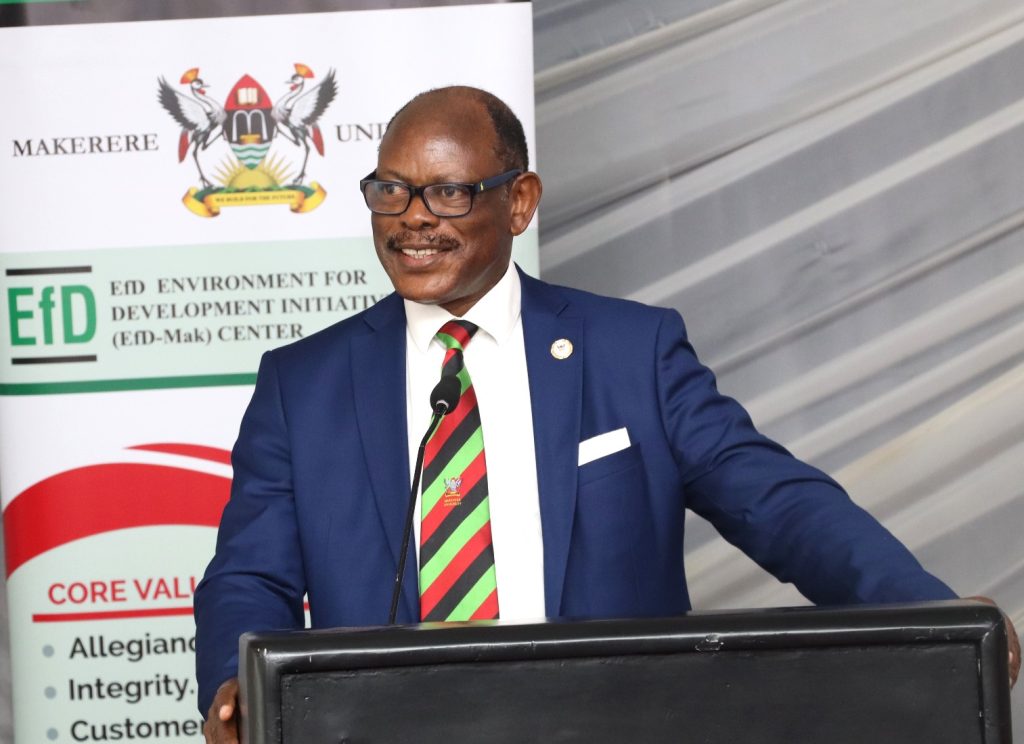
Prof. Nawangwe highlighted Makerere University‘s commitment to supporting government programs, stating, “We are here for you. We are a government institution, and the people of Uganda have invested heavily in Makerere University, so we must reap from that investment.” He assured the Minister that the university is available to support government initiatives and emphasized that the funds provided for research and innovations should be used to address the government’s development challenges.
He specifically mentioned the university’s capability to conduct mineral testing, which could prevent the need to send samples abroad, thereby saving costs. Prof. Nawangwe expressed excitement about the invitation to collaborate and pledged Makerere University‘s full support for government programs. He also congratulated the Ministry of Energy on its successes, particularly the commissioning of the West Nile plant, which he described as a game-changer for the country’s energy sector.
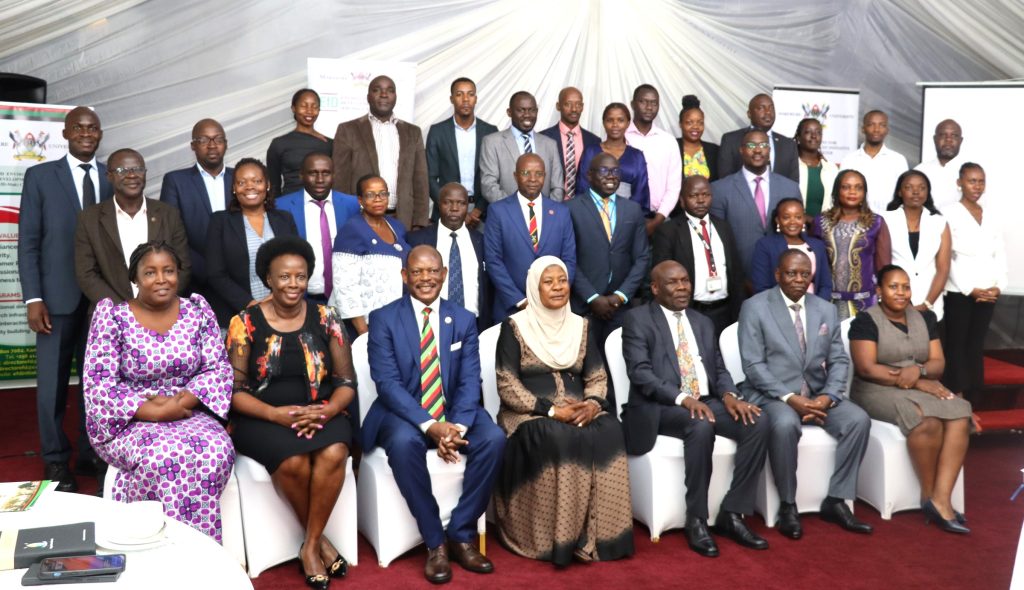
Prof. Nawangwe acknowledged the importance of the Inclusive Green Economy (IGE) Capacity Building Program, highlighting that the issues addressed by the fellows are crucial for Uganda’s future. He recounted his childhood experience of passing through a green forest while studying in his village home , contrasting it with the current state of deforestation and urban slums. He stressed the urgency of addressing environmental issues as the population continues to grow, predicting severe consequences if action is not taken.
He commended the government for its active involvement in the IGE program and its collaboration with Makerere University through various initiatives, such as the Climate Resilient Infrastructure Development Facility (CRIC). Prof. Nawangwe congratulated the graduating fellows for their year-long engagement and encouraged incoming participants to take the training seriously, emphasizing that it would empower them and enhance their professional capabilities.
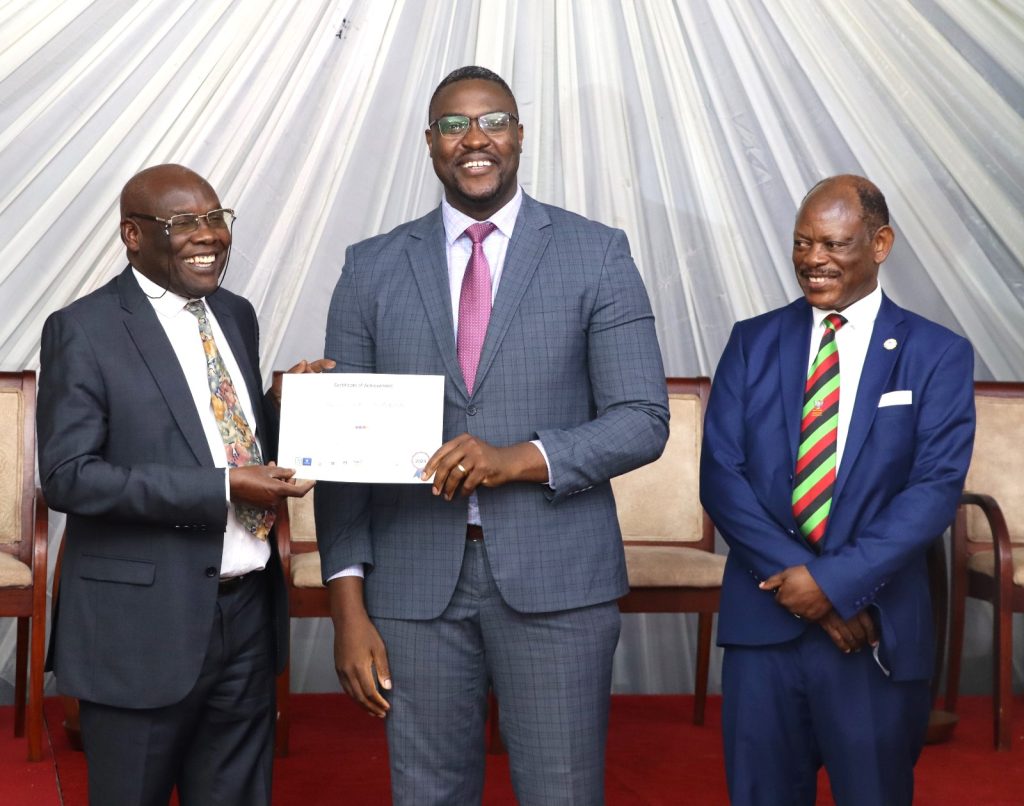
Swedish Ambassador Emphasizes the Importance of Universal Access to Sustainable Energy
Closing the event, Swedish Ambassador to Uganda, Maria Håkansson, highlighted the critical role of universal access to affordable, reliable, and sustainable energy in achieving the Sustainable Development Goals (SDGs). She stressed that energy is essential for economic growth and the provision of social and public services.
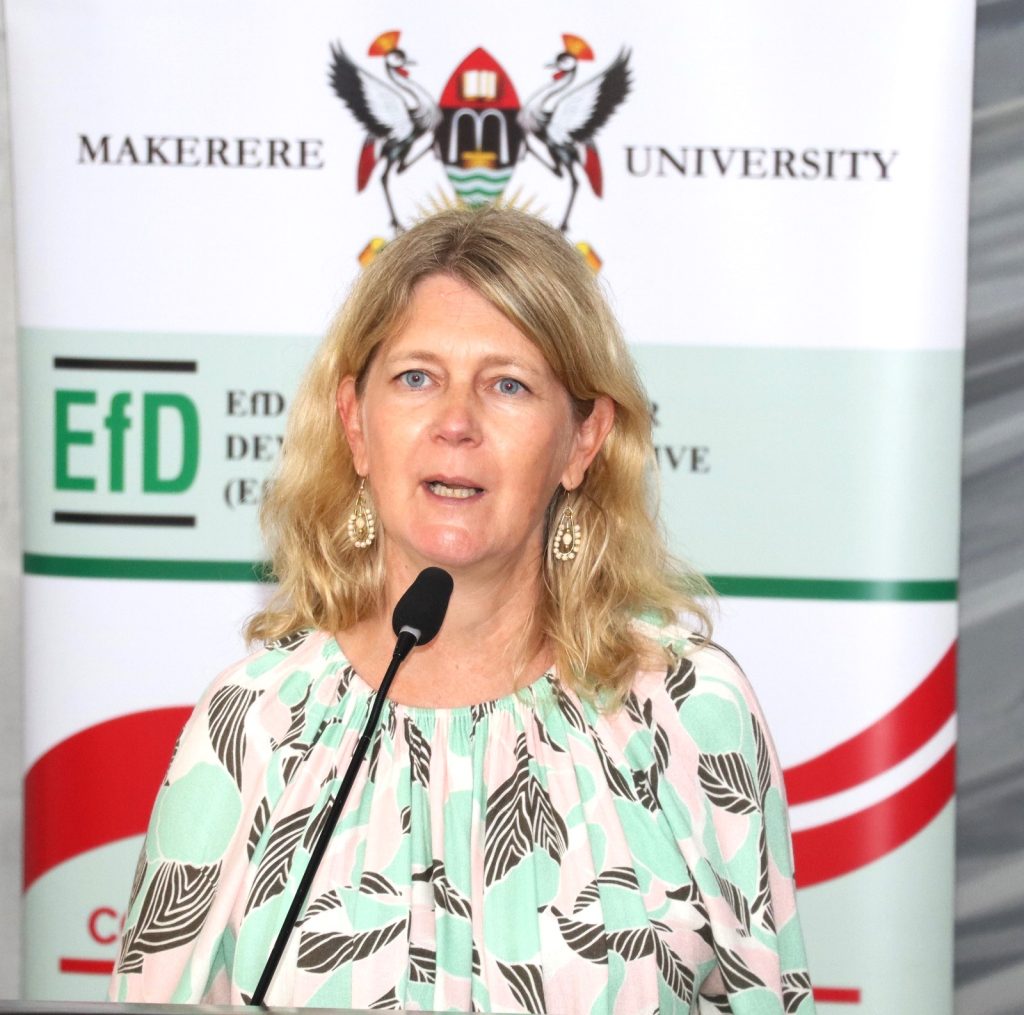
Ambassador Håkansson noted Sweden’s ambitious goal to become the world’s first fossil-free welfare state by 2045, aiming for net zero emissions. “We strongly believe this is important for us to keep the planet and life safe,” she said. This transformation requires a profound shift in systems and technology to ensure cleaner air, better urban environments, and safer energy supplies. Sweden has successfully decoupled carbon dioxide emissions from GDP growth since 1997, thanks to a significant reliance on renewable energy, without compromising public welfare or prosperity.
Sweden’s partnership with Uganda in promoting energy access and efficiency is strong. In 2019, the ambassador said, a Memorandum of Understanding was signed with the Ugandan government for energy sector cooperation, which has been extended. Various capacity-building programs have trained energy sector staff in renewable energy and energy efficiency. A partnership with SNV, Makerere University, and the Private Sector Foundation Uganda, supported by Sweden with USD 8.8 million, aims to engage the private sector in designing impactful energy efficiency solutions.
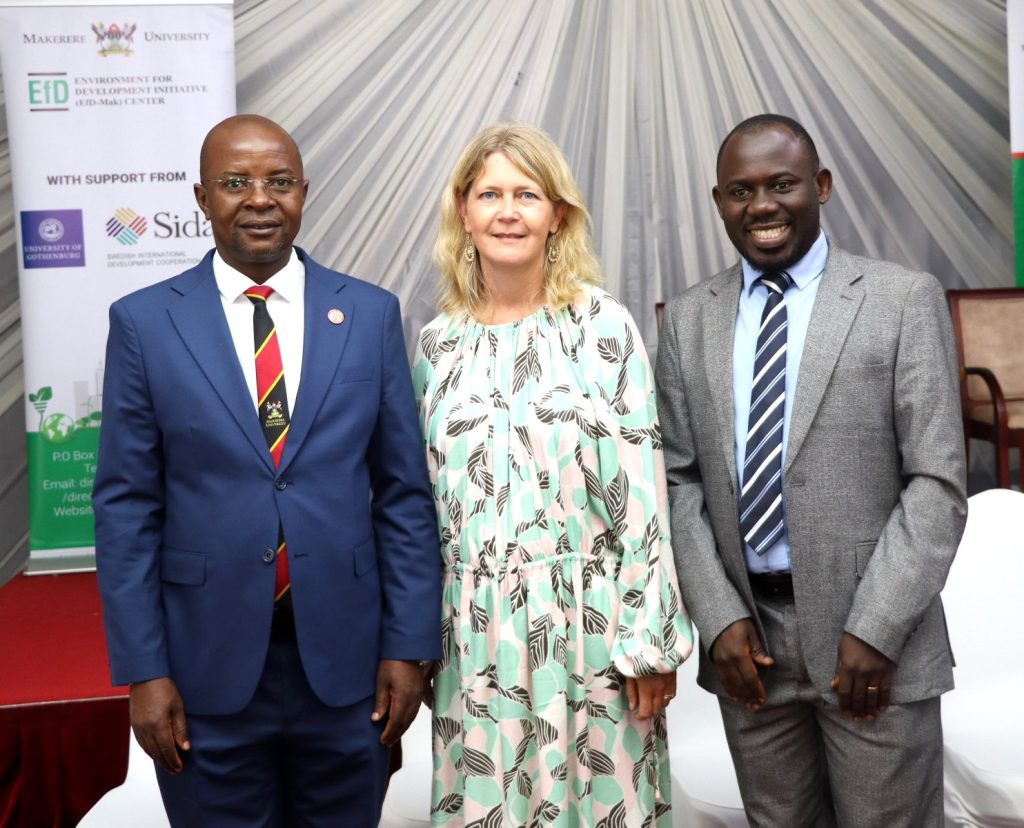
Sweden also reported that supports the Power Africa initiative to double electricity access in sub-Saharan Africa and collaborates with UEGCL and Swedfund on a feasibility study for floating solar panels on water reservoirs. This project aims to enhance the electricity generation capacity of Ugandan hydro power dams.
Additionally, Sweden’s support for the UNCDF Renewable Energy Challenge Fund has resulted in the avoidance of approximately 1,514,787 tons of carbon dioxide emissions through clean cooking initiatives. “The use of effective and clean cooking solutions has clear positive impacts on the daily lives of not least women and children by reducing indoor air pollution and easing the workload of collecting firewood,” Håkansson explained. “At the same time, it reduces deforestation and soil degradation.”
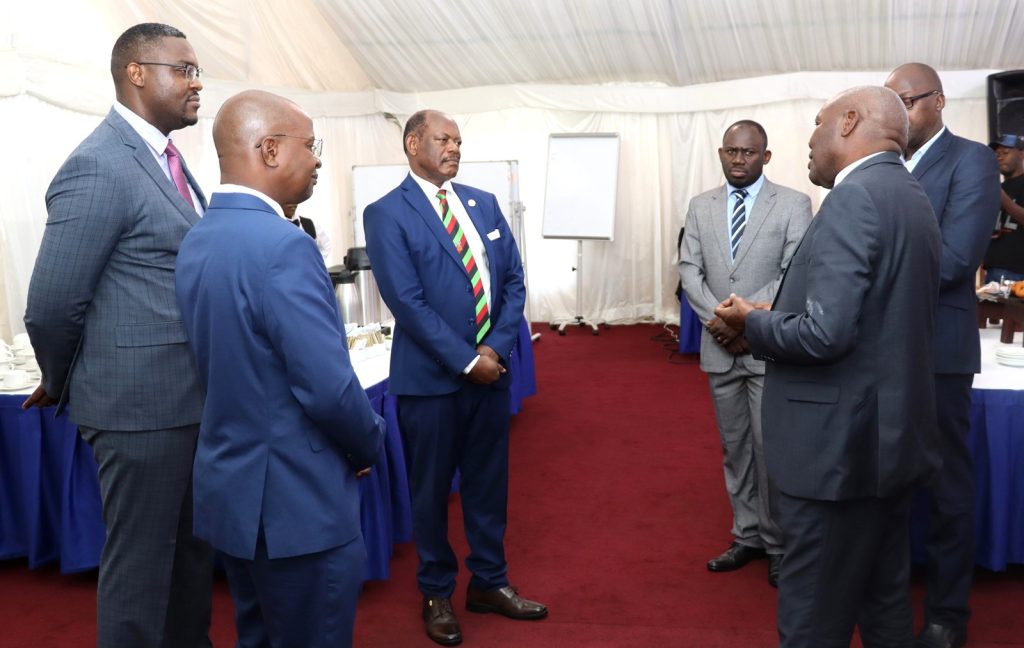
The Inclusive Green Economy (IGE) in Practice program, funded by the Swedish Development Cooperation and conducted in collaboration with Makerere University, focuses on sustainable energy transitions, particularly promoting clean cooking solutions. These solutions according to the ambassador have significant positive impacts, such as reducing indoor air pollution, easing the workload of collecting firewood, and mitigating deforestation and soil degradation.
Ambassador Håkansson concluded by commending the IGE Fellows for their efforts to raise awareness and increase the uptake of cleaner energy sources, congratulating them on their graduation from the program. “Let me conclude by commending the IGE Fellows for their work to raise awareness and increase the uptake of cleaner energy sources as well as congratulate them as they today graduate from the program,” she said.
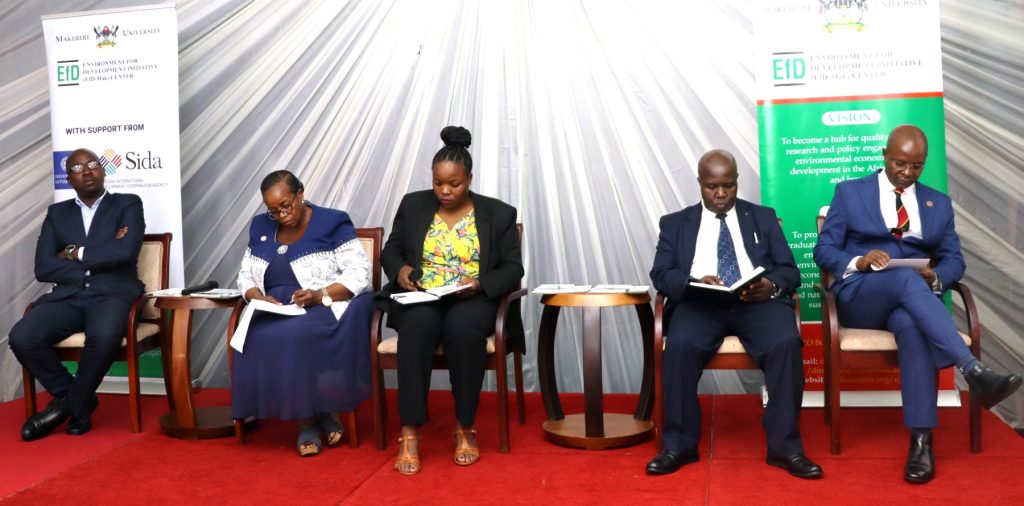
Jane Anyango is the Communication Officer EfD Uganda

